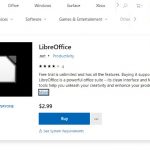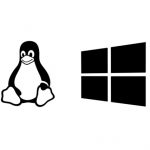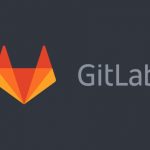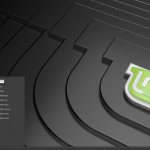Microsoft launches open source Quantum Katas project on GitHub to teach Q# programming

Quantum computing is the future, and it has the potential to change everything. These new machines will be much more powerful than any "classic" computer available today. Quantum computers will be able to do calculations that we can only dream about today, potentially solving problems never thought solvable before. These powerful computers may even render current encryption methods obsolete.
Of course, hardware is just part of the equation. In order for quantum computers to truly change the world, we will need software written for them. Microsoft seems eager to get programmers on the quantum bandwagon, as today, it launches the open source Quantum Katas on GitHub. What exactly is it? It is essentially a project deigned to teach Q# programming for free.
Free, open source office suite LibreOffice arrives in the Microsoft Store -- with a price tag

LibreOffice is one of many free alternatives to Microsoft Office, and the open source office suite has now arrived in the Microsoft Store.
While many people will be pleased by the appearance of a Store version of the software, some will be disappointed to find that the app is not free. At least not at first glance. There's a $2.99 price tag attached to Libre Office, but this is not necessarily a reason to let this put you off.
Microsoft PowerShell Core for Linux now available as a Snap

Microsoft is a major proponent of both Linux and open source these days. This is a shock to many old-school computer users, but for those following the "new Microsoft" under Satya Nadella's leadership, it really isn't surprising. Hell, the company now owns GitHub! The CEO keeps an open mind and is very focused on the cloud and services. While Windows still matters to the company, it is far from the main focus.
The Windows-maker releases plenty of software for Linux, such as the very popular Skype. For many, PowerShell Core has proven to be a useful tool, and today, Microsoft makes it available as a Snap. If you aren't familiar, a Snap is essentially a packaged version of a program that can be easily installed on many Linux distributions. Many see it as the future of Linux, as it has the potential to reduce fragmentation.
Canonical releases new infographic to show how Ubuntu Linux 'connects everything'

Microsoft owns the desktop with Windows -- it is undeniable. You know what? That's fine. But the success of Windows is not a failure for Linux. What I mean to say is, the open source kernel is omnipresent, whether you know it or not.
To highlight the ubiquitous nature of Ubuntu in particular, Canonical today releases an all-new infographic showing how this distribution "connects everything." I urge you to give it a look, as it will open your eyes to just how important Ubuntu -- and Linux overall -- really is. Apparently, this is an update to a previous infographic released in 2016, refreshed for 2018 following the release of Ubuntu 18.04 Bionic Beaver.
SUSE Linux sold for $2.535 billion

British firm Micro Focus International is selling its open source SUSE software to the Swedish group EQT Partners. The $2.535 billion deal boosted shares by 6 percent.
SUSE Linux has been in the hands of Micro Focus International since 2014 and it has been running it as a largely independent division, competing directly with the likes of Ubuntu and Red Hat. The acquisition by EQT Partners means that more developers and engineers will be hired to work on the product.
Debian-based deepin Linux 15.6 now available

deepin Linux is controversial because its developers are in China. You see, some people are suspicious of a Linux distribution that comes from that country. If you feel that way, that's your business. But you know what? I am personally sick and tired of such xenophobia these days. Let's not forget, many goods come from China -- including personal computers and associated components. Not to mention, the OS is largely open source.
Controversy aside, deepin is a great operating system for both Linux beginners and experts alike. Not only is it stable thanks to its Debian base, but it has a very polished and focused user experience. Today, version 15.6 becomes available, and it is loaded with improvements.
Google releases open source 'GIF for CLI' terminal tool on GitHub

Tomorrow is the GIF's 31st anniversary -- exciting, right? Those animated images have truly changed the world. All kidding aside, it is pretty amazing that the file format came to be way back in 1987!
To celebrate tomorrow's milestone, Google releases a new open source tool today. Called "GIF for CLI," it can convert a Graphics Interchange Format image into ASCII art for terminal. You can see such an example in the image above.
GitLab makes premium plans free for educational establishments and open source projects

Microsoft's acquisition of GitHub has paid off for rival GitLab. Many GitHub users were unhappy at the Windows-maker's involvement and promptly jumped ship -- there were over 100,000 repositories imported in the 24 hours following the acquisition, and #movingtogitlab was trending on Twitter.
Looking to make itself even more attractive than just not being owned by Microsoft, GitLab has now made its premium Gold and Ultimate packages free to some users, specifically educational establishments and open source projects.
Ubuntu 18.04-based Linux Mint 19 'Tara' Beta is here with Cinnamon, MATE, and Xfce

Ah, Linux Mint. This operating system has its detractors, but for the most part, it is beloved by both Linux beginners and experts alike. True, most of the praise is due to its excellent Ubuntu base, but the Mint team understands what many other distribution maintainers don't -- the overall experience matters. When you install Mint, you are in for a polished treat -- it is clear that the developers truly care about the end users.
Today, Linux Mint 19 "Tara" Beta finally sees release. Three desktop environments are available -- Cinnamon (3.8), MATE (1.20), and Xfce (4.12). All of these DEs are excellent, but the shining star is Cinnamon. Tara is significant as it is based on the newest Ubuntu 18.04 and will receive updates until the year 2023. The included Linux kernel is version 4.15 and not 4.17 -- understandable, as it was only just released.
Microsoft officially announces agreement to acquire GitHub in $7.5 billion deal

Following months of talks and rumors, Microsoft has finally officially revealed that it has agreed to acquire GitHub. The agreement sees the company acquiring the code repository for $7.5 billion in Microsoft stock.
Microsoft says that GitHub will retain its developer-first ethos and will operate independently to provide an open platform for all developers in all industries. The deal is expected to close by the end of the year.
GIMP now hosted by GNOME on GitLab

Just yesterday, we shared that The GNOME Project moved to GitLab. This was a major score for GitLab, but also, an important move for GNOME as well -- it should greatly improve collaboration between its contributors. GNOME is not alone in its move to that Git-repository manager, however, as GIMP (plus the babl and GEGL libraries) also made the transition. Actually, believe it or not, GNOME is hosting GIMP there.
If you aren't familiar with GIMP (GNU Image Manipulation Program), please know that it is an open source image/graphics editor/manipulator. It is very similar to Adobe Photoshop, although GIMP is totally free. In fact, the open source Photoshop alternative is a cross-platform affair, available not just on Linux, but macOS, and Windows too. It is an extremely important program for the open source community -- right up there with LibreOffice.
GNOME transitions to GitLab

GNOME is one of the most important open source projects on the planet. Even if you use an alternative desktop environment, such as KDE or Xfce, you cannot deny that GNOME's contributions have largely shaped the path of Linux on the desktop for the better. Don't forget, GNOME is much more than just a DE -- many of its apps are essential. That's probably why someone (or something) recently pledged to donate $1 million to it -- GNOME's existence and success is a must for the Linux community.
Today, The GNOME Foundation makes a very big announcement -- the project has fully transitioned to GitLab. In other words, yes, the GNOME Project is growing up a bit and becoming better organized. This move to the GitLab Git-repository manager is a breath of fresh air, quite frankly, and should really improve collaboration between GNOME Project contributors.
MariaDB launches Oracle compatible enterprise open source database

Enterprise computing has often been reliant on proprietary database architecture, but this can be both complex and costly, putting up a barrier to innovation.
Now open source database specialist MariaDB is launching its latest enterprise offering with Oracle compatibility. This allows existing Oracle Database users to reuse existing code and established skill sets when migrating applications or deploying new ones.
New service offers enterprises fast, easy real-time streaming

Apache Kafka has has become increasingly popular as a data streaming platform but it can be hard for businesses to take full advantage of it without the right skills.
Now though Open Source-as-a-Service company Instaclustr is launching a new Kafka-as-a-Service solution to allow enterprises to manage high volume data streams in real-time.
Tennibot is a really cool Ubuntu Linux-powered tennis ball collecting robot

Linux isn't just a hobby -- the kernel largely powers the web, for instance. Not only is Linux on many web servers, but it is also found on the most popular consumer operating system in the world -- Android. Why is this? Well, the open source kernel scales very well, making it ideal for many projects. True, Linux's share of the desktop is still minuscule, but sometimes slow and steady wins the race -- watch out, Windows!
A good example of Linux's scalability is a new robot powered by Linux which was recently featured on the official Ubuntu Blog. Called "Tennibot," the Ubuntu-powered bot seeks out and collects tennis balls. Not only does it offer convenience, but it can save the buyer a lot of money too -- potentially thousands of dollars per year as this calculator shows. So yeah, a not world-changing product, but still very neat nonetheless. In fact, it highlights that Linux isn't just behind boring nerdy stuff, but fun things too.
Recent Headlines
BetaNews, your source for breaking tech news, reviews, and in-depth reporting since 1998.
© 1998-2025 BetaNews, Inc. All Rights Reserved. About Us - Privacy Policy - Cookie Policy - Sitemap.